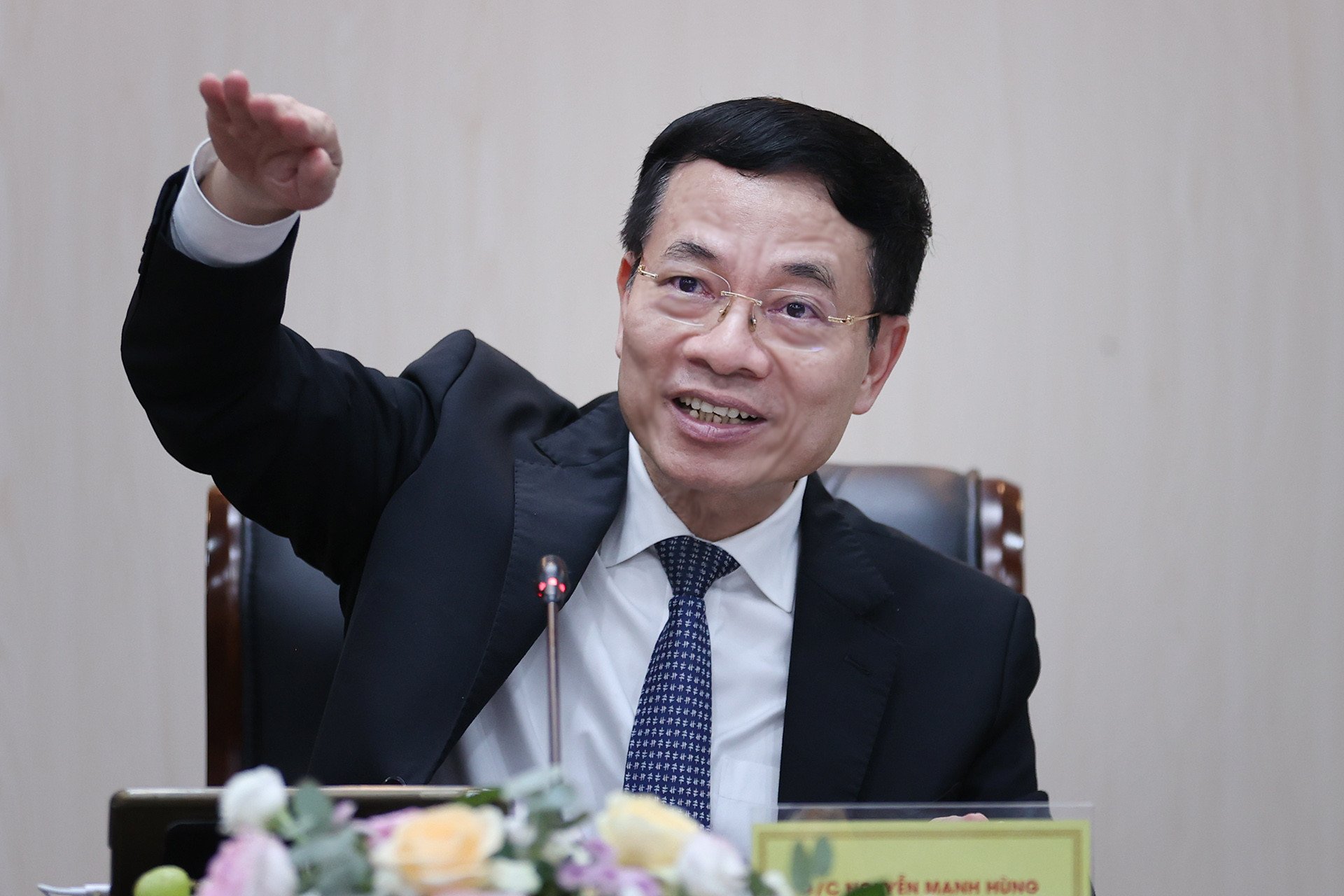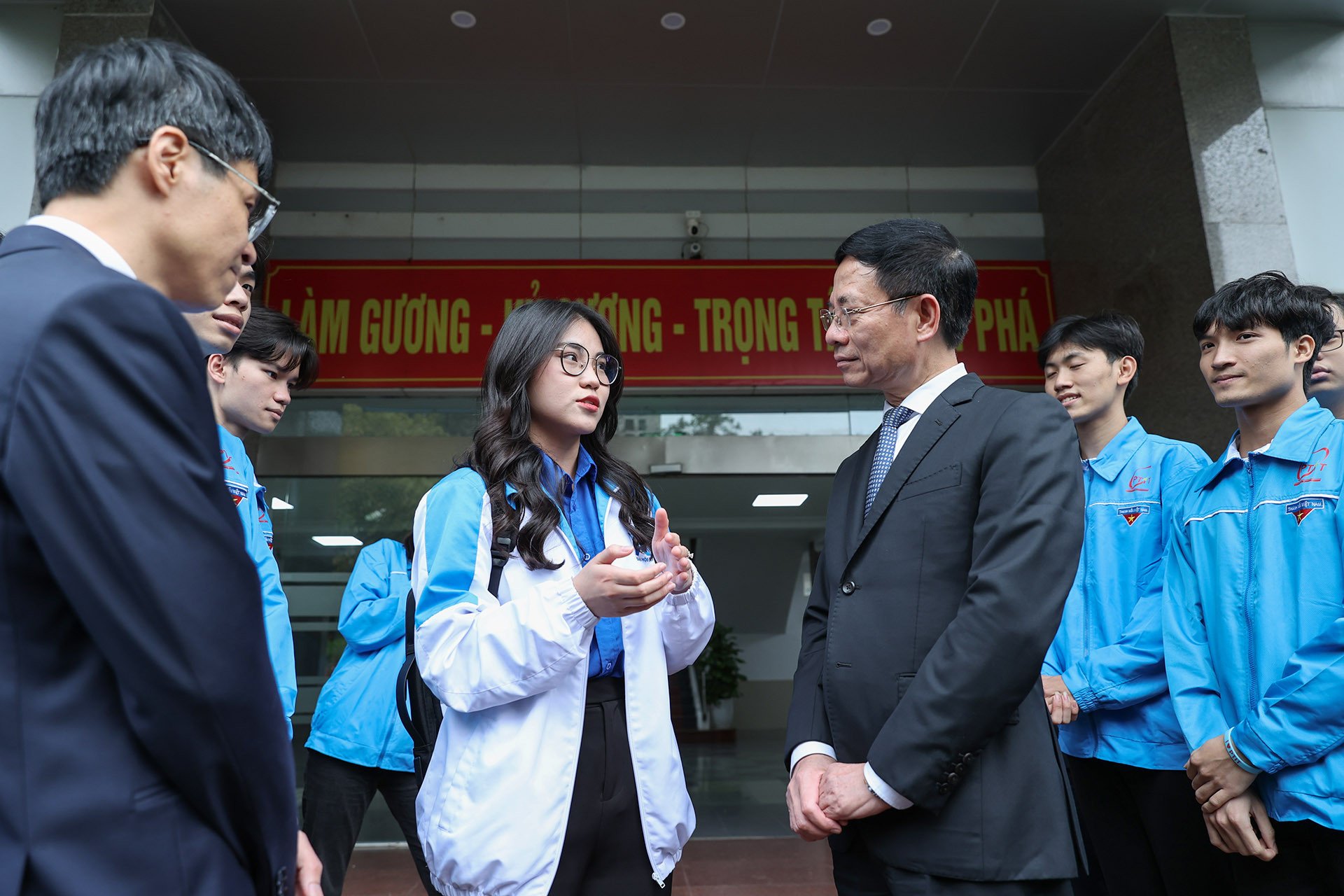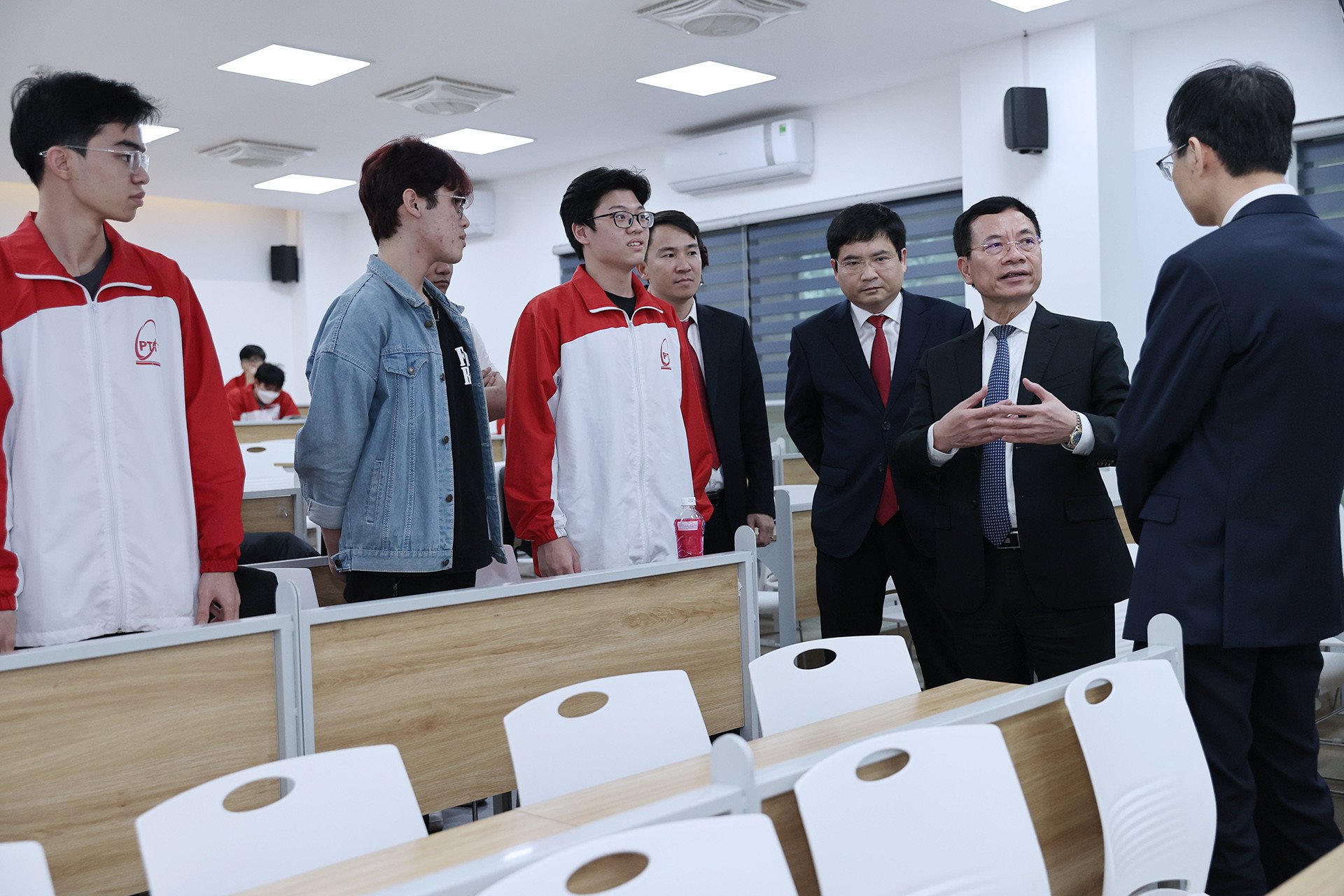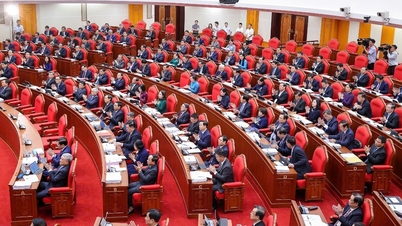
The Academy has a 70-year tradition, originating from the Post and Telecommunications School. It has also been under the Ministry of Information and Communications for 10 years. Therefore, it has both a rich tradition and new requirements.
I highly appreciate the achievements made by the leaders and the entire staff, lecturers, researchers, trainees, and students of the Academy in the past period. The digital transformation of the university has yielded initial results. International cooperation has been given attention. The new leadership team is highly combative, ambitious, and determined. Congratulations and thank you for these contributions.
Universities are typically long-lasting institutions, spanning hundreds or even many centuries. The academy must consider this long-term existence. It must have a long-term vision for the future. It must have a guiding star. A far-sighted vision will lead the academy better. A far-sighted vision will help the academy ensure continuity and consistency in development, lasting through many generations. Only in this way can a university be built to last for centuries or even longer.
Long-term, but we must also consider the contribution this generation makes to building the Academy. Think far ahead and big, but act in small steps. Small steps guided by a leading star will lead to the destination. Small steps without a leading star will lead to a vicious cycle.
For long-term success, we must build strong foundations, laying a solid base before constructing the first floors. The Academy's leadership must consider what foundations the Academy already has and what still needs building. What will this generation build, and what will future generations build? A strong foundation ensures sustainable development. Excellent leaders always prioritize creating a solid foundation, because the foundation endures for a long time, lasting beyond the leader. Without a foundation, rapid short-term growth might occur, but that growth will eventually fade away with the leader. Therefore, consider the Academy as a house built by many generations, with each generation and each individual contributing their brick to its construction.
For an organization to survive in the long term, its mission, vision, and core values must be established and maintained consistently. The academy must formalize these, considering them the foundation, the essential elements to uphold throughout its development. They are immutable. Maintaining these immutable elements is crucial for adaptability and flexibility in this rapidly changing era. Without adaptability, it is impossible to adapt, develop, or survive. However, adaptability without maintaining the immutable elements will lead to disorientation and submersion in chaos.
For sustainable, long-term development, we must build a culture. Culture creates the glue that binds everyone in the Academy together, fostering a healthy environment. Culture is an unwritten law; it's deeply ingrained and self-aware. Culture handles things that aren't regulated, things that are commonplace and easily lead to conflict. Culture is the last thing that remains when nothing else is. Culture is also what distinguishes organizations. The Academy has declared its cultural values and needs to maintain them throughout. The President of the Academy should take on the responsibility of building this culture.
For culture to deeply permeate an organization, its cultural values must be integrated into its operating system, rules, and regulations.
Digital technology (DTC) has a profound impact on education. Perhaps never before has education undergone such a significant transformation. This fundamental change allows universities that are lagging behind to surpass others. Such opportunities often only arise at this particular moment. Therefore, the Academy must be determined to strongly apply new technologies to transform its education methods, a process known as digital transformation within the Academy.
To become a leading university in Vietnam and the region, the only path is digital transformation. Addressing the long-standing problems of the Academy, overcoming resource limitations, creating new resources, making a difference, developing new problem-solving methods and approaches, must be based on technology and digital transformation.
One of the key characteristics of the digital transformation era is that the digital workforce becomes the primary productive force. This means that the Academy's main workforce will not only be teachers but also digital personnel. Digital personnel in universities create the foundation for digital training, digital learning materials, online learning design, and online testing. 20-30% of the Academy's workforce must be digital personnel. The Academy could establish a digital transformation enterprise to implement digital transformation, initially for the Academy itself and then for other training institutions.

CNS creates new professions. The Academy must focus on these new fields, considering this as its fundamental differentiator. Because the Academy is the only university specializing in CNS, the only university under the Ministry of Information and Communications, and the Ministry responsible for state management of CNS, if the Academy does not find its unique selling proposition and its distinct strengths, it cannot thrive.
New vocational training should focus on reskills (retraining) and upskills (upgrading skills). Vietnamese people learn quickly, so reskills will be suitable and flexible. The demand for reskills is very high when a new industrial revolution emerges. This should be considered a large market. Academies will be the strongest schools for training reskills and upskills. Initially, this could focus on reskills and upskills in chip design and the semiconductor industry.
Technology and digital transformation are the most important characteristics, playing the most crucial role in the development of humanity over the next 30-50 years. The Academy has a fundamental advantage in being part of a ministry or sector focused on technology and digital transformation. The Academy has failed to capitalize on this advantage. This failure stems from the fact that the Academy still views itself as just another ordinary university, like hundreds of others.

In digital technology training, collaboration between universities and businesses plays a crucial role. Vietnam has nearly 50,000 digital technology businesses, employing almost 2 million people. The Academy needs to have information and relationships regarding the human resource needs of these businesses. The ICT Industry Department is building a database of digital technology businesses, which also presents an opportunity for the Academy.
The Academy collaborates with several large domestic and international businesses to establish training centers for new professions. This is a growing trend. There is no better way to provide fast, high-quality training with up-to-date knowledge, guaranteed job placement, and immediate employment upon graduation. Collaborating with businesses leverages their resources (learning materials, lecturers, laboratories, practical training facilities, etc.). Many universities in other countries have successfully implemented this model. The Academy can learn from and emulate it.
Modern universities are also following new training models and new business models. For example, training based on the needs of businesses, with businesses paying the university. Innovation in creating new training models and new cooperation models is an important innovation for universities.
The Academy must give these innovations due attention.
A crucial infrastructure for a university is its research facilities. The Academy prioritizes investment in these facilities. Modern laboratories act as a magnet for research at the Academy. While immediate investment is not possible, cooperation agreements can be signed to utilize the research infrastructure of businesses. Accepting research orders from businesses, especially long-term, fundamental research, is also important, as businesses are weaker than universities in this area.
Why is international cooperation important for a university? Recently, the Ministry decided to appoint the Director of the International Cooperation Department to the University Council. University education is global in nature, with many global values. Universities have a high degree of autonomy and therefore need cooperation and mutual learning even more. No prestigious university is weak in international cooperation. The Posts and Telecommunications Institute of Technology can also use expanding international cooperation as a differentiating factor and a strength. The Ministry of Information and Communications supports the expansion of international cooperation, but emphasizes that it must still be based on effectiveness.
The academy must operate like a business. Business management must be integrated into the academy. The most effective management is business management. The larger and more extensive the academy becomes, the better its management must be. The mindset must be like that of a business. Initially, this means introducing business management systems into the academy, possibly using business management software within the academy.
Finally, I would like to address the issue of ethics in universities. Recently, some American Ivy League universities have been embroiled in ethical issues concerning their leadership, damaging the reputation of the institutions. The university should learn from this and be mindful to prevent similar unfortunate incidents from happening again. Universities should always remain clean and healthy environments. Faculty and university leaders should continue to be ethical role models for students and society.
I wish the Academy success in finding its path and steadfastly following it, steadfastly through generations. Working with great passion. To achieve that, one must have great aspirations. The aspiration to be the number one university in CNS. The aspiration to be a university that will last for centuries, many centuries.
Source


















































































































Comment (0)